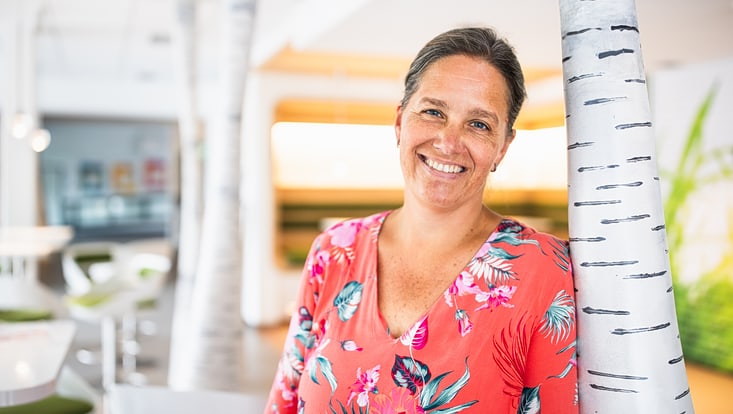RTG 2530 Short PortraitsWelcome to the team, Nicole Aberle-Malzahn!
30 June 2025, by RTG 2530

Photo: UHH/Esfandiari
Nicole Aberle-Malzahn has joined the RTG 2530 team as a new Principal Investigator. We're delighted to introduce her as part of our portrait series, in which we also asked her three questions.
1. What is the main focus of your research, and what are the overarching topics, questions or objectives?
My research focuses on plankton communities and how they are influenced by changing environmental conditions. Within the plankton, small, unicellular grazers have a special role, as they feed on bacteria and unicellular microalgae, and also serve as food for multicellular organisms. They therefore play a central role in the food web and also react very quickly to environmental changes. In experiments that we carry out in teamwork in the RTG 2530, we manipulate environmental conditions for plankton organisms (e.g. through changes in temperature, nutrient concentrations or oxygen content) and try to draw conclusions about changes in the ecosystem. We include the main key species of plankton, i.e., particularly common or ecologically important species, in our analyses.
2. What made you decide in favour of this field of research? What fascinates you about it, and what do you see as the biggest challenge?
Plankton communities are characterised by a high level of biodiversity and fulfil many different ecosystem functions in freshwater and the sea. I have been fascinated by plankton for over 20 years, and I am still amazed by the enormous diversity of forms and species. However, plankton communities are increasingly under massive pressure, as climate change and other stressors (e.g. nutrient and plastic inputs or underwater noise) are changing the living conditions for plankton organisms and putting their adaptability to the test. With my research, I try to draw attention to the threat to biodiversity and the associated challenges for aquatic ecosystems and their ecological performance.
3. What are your expectations of the collaboration in the Research Training Group 2530, and is there anything you are particularly looking forward to?
A major advantage of the Research Training Group 2530 is the participation of many different sub-disciplines, all of which bring different perspectives to the project. The interdisciplinary collaboration enables us to address large, complex ecological interactions using different methods and to work on comprehensive issues. Personally, I see great potential in the RTG 2530 to record complex ecosystem processes and the relationships between terrestrial and aquatic ecosystems and to quantify changes.
About the RTG 2530 Short Portraits
The second four-and-a-half-year funding phase of the RTG 2530 started on 1 April 2025, and with it, we welcome new and familiar faces in new roles. In our portrait series, we briefly introduce our new additions.


